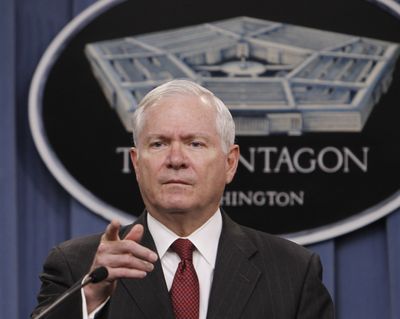Defense secretary opposes quick ‘don’t ask’ repeal
Gates asks lawmakers to wait for review

WASHINGTON – Defense Secretary Robert M. Gates told Congress on Friday that he strongly opposes any immediate legislative attempts to repeal or alter the ban on gays serving openly in the military.
Gates supports the eventual repeal of the ban. But in a letter to the House Armed Services Committee, Gates said that before Congress acts, he wanted the Pentagon to first finish its review of the impact of any potential changes and develop an implementation plan.
Changing the law before the assessment is complete, Gates wrote, “would send a very damaging message to our men and women in uniform that in essence their views, concerns, and perspectives do not matter on an issue with such a direct impact and consequence for them and their families.”
While Gates previously has cautioned against repealing the law before the assessment is complete, he used his strongest language yet in the letter to the House committee.
President Barack Obama, in his State of the Union address, said he would work with Congress and the military to repeal the law “this year.”
Gates has set a December timetable for completing a review of the impacts of changing the 1993 “don’t ask, don’t tell” law, which bars gays and lesbians from serving openly.
Rep. Ike Skelton, D-Mo., the chairman of the House Armed Services Committee, asked Gates for his views on whether Congress should adjust the law this year.
In his letter, Gates said it was critical that military members be allowed to express their opinions before any legal changes were made.
“Our military must be afforded the opportunity to inform us of their concerns, insights, and suggestions if we are to carry out this change successfully,” Gates wrote.
Pushing back any change until after the review has been completed would ensure that the debate would take place after the midterm elections, potentially making the politics slightly less contentious.